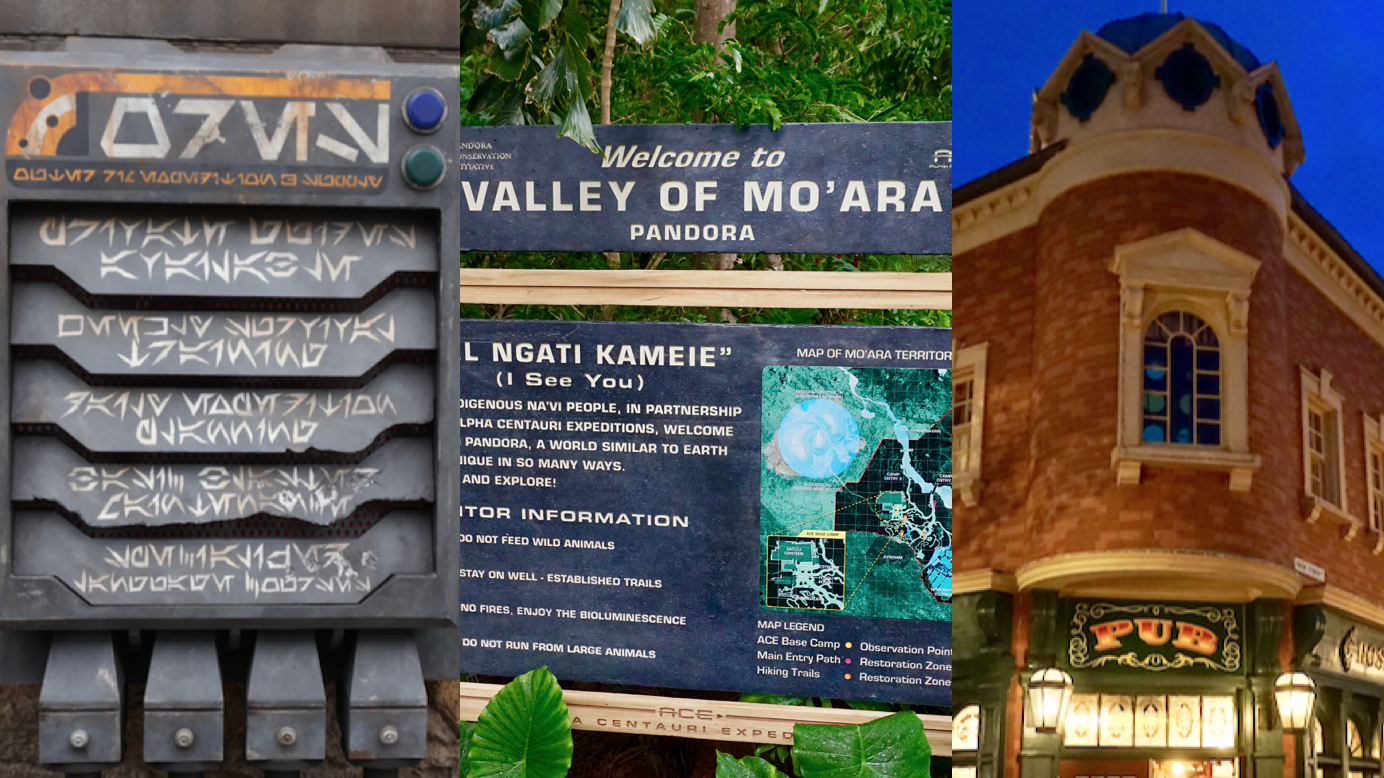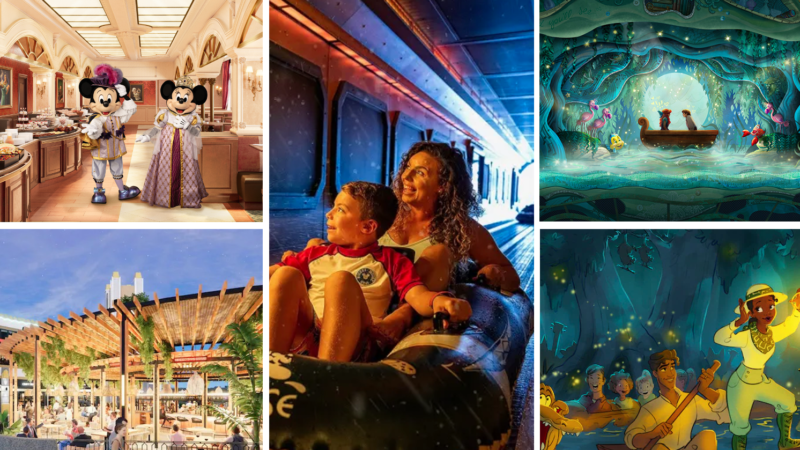The Languages at Batuu, Pandora & More

Episode 36
This week’s podcast we are talking about languages at Disney, what works, what doesn’t, and how it affects the culture. I also talk about the language of Disney itself in an accompanying post to this one at DisneyatWork.com and in our podcast which can be can be found here on Podbean and here at iTunes.
The Language of Batuu

One of the distinct features of the new Star Wars Galaxy’s Edge has been the development of a “language” used by the citizens on the planet Batuu. Here is a list of such expressions:
| Expressions/Terms in U.S. | Expressions/Terms in Batuu |
| “Mornin'” (Informal) | “Suns Up” (Informal) |
| “Good Morning” (Formal) | “Bright Suns” |
| Greeting Among Resistors | “Ignite the Spark” or “Light the Fire” |
| Guests | Off Worlders, Travelers, Recruits |
| Children | Younglings or Padawans |
| Stroller | Youngling or Padawan Transport |
| In the Land | On Planet |
| Restroom | Refresher |
| Drinking Fountain | Hydrator |
| “I don’t know” | “Only the ancients know” |
| “Good Evening” | “Rising Moons” |
| “Goodbye” (Informal) | “‘Til the Spire” (Informal) |
| “Farewell” (Formal) | “May the Spires Keep You” (Formal) |
| “Take Care” | “Good Journey” |
| Money/Cash | Credits |
| Gift Card | Spira |
| Apple Watch | Wrist Communicator |
| Phone | Data Pad |
| Photo Pass | Image Data Pad |
| Photo/Picture | Scan |
The Language of Aerebesh

Aurebesh is the galactic standard in the universe. While it’s unlikely that many people will be speaking the language, it’s likely that you will see it on buildings and other writings. Below is a tool for translating those expressions when you come upon them. It’s also available on your Play Disney app when you are in the parks.

There is a more reformed version of Arebesh. One that looks like Arebesh but reads like English. This is the version on most signage. For instance, in the following image, you see in this debit/credit card reader:

The Language of Pandora

Likewise, when Pandora was created, a language set was created. The difference is that these terms are words of a different language, rather than simply different terms. Here are some expressions listed below:
| English Expression | Na’vi Expression |
| “Hello” (Informal) | “Kaltxì” |
| “Welcome” (Formal) | “Zola’u nìprrte’” |
| “My name is…” | “Oeru syaw…” |
| “Thanks: | “Irayo” |
| “Please” | “Rutxe” |
| “I See You” | “Oel ngati kameie” |
| “Rise to the Challenge” | “Sivako” |
| Banshee | Ikran |
| “See You Soon” | “Kìyevame” |
| Student (in this case, a new Cast Member) | Numeya |
| Kid/Child | ‘Evi |
| “Eywa be with you” | “Eywa” |
| Heritage | Satu’li |
| Party of People | Pongu |
| Gathering Place | Mo’ara |
| Swotu Wayä | Sacred Place for Words |
United Kingdom

When you visit Epcot, of the many countries around World Showcase , it should be the easiest for United States citizens to speak with the Cast from the United Kingdom, Right?
Well it may not be that simple, or as they say there, “Bob’s your uncle.” You may want to know what to say, so as to not make a mistake, or “drop a clanger.”
Next time you’re passing through London by means of the Underground (subway), you’ll find that there are some words and phrases you might not find in the U.S. You probably know that the pub is simply a bar. But when you order fries, you’ll want to say chips. Do you like sausage? That will be a banger. And if you should ever get into a brawl with someone else, you’ll refer to it as a barney with a bloke. If you’re hauled away, it may be done by a policeman, but they might more likely be referred to as a bobby, or even Old Bill.
You get the idea. The same thing happens in all-English-speaking countries. There are certain words and phrases that we use that are unique to the country. In the United States we may refer to something differently in the South than we would out West.
Insights
Here are some thoughts about what is working and what is not working in each land:
- What you hear frequently you are more likely to use.
- An entirely different language is much more difficult than a different way of saying things.
- If you don’t use it, you lose it.
- What makes words unique is how they contribute to your understanding of the culture.
- You can speak the same language, but mean very different things.
At Disney at Work, we have an accompanying post that looks at Disney and language. Did you know that Disney has its own vocabulary? Take a look. It may have some application to your own daily work.






